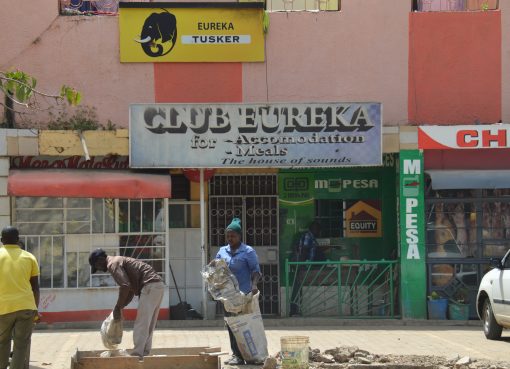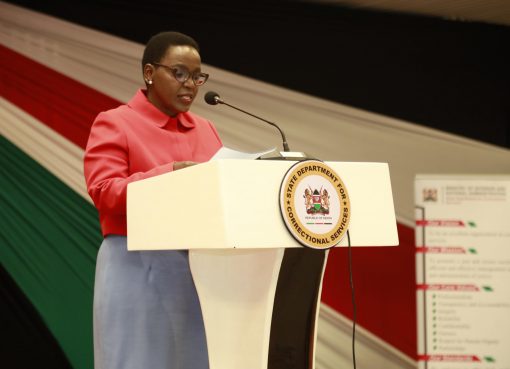Members of the Sauti Savings and Credit Cooperative Society (SACCO) have been urged to renew their membership in the Sacco when they retire from active employment in order to continue enjoying easy access to cheap loans for their personal development.
Sacco national chair Mr. Elly Ndwigah said the law put in place by the Sacco Societies Regulatory Authority (SASRA) requires that each member withdraw all their shares from a Sacco after retiring but this does not deter a member from rejoining a Sacco in order to continue accessing cheap credit for self-advancement in retirement.
“We will have products tailor-made for retirees, noting that they can no longer access loans from the Sacco the same way they did when in active employment,” Ndwigah said.
He, however noted that such members will be guided by separate regulations set up by the Sacco for them since they no longer have the steady stream of income like before.
The remarks were contained in a speech read on his behalf by Board Member Mr. Milton Odhiambo Omondi during a members’ education day session in Nakuru for South Rift branch members on Friday.
He noted that despite the decline in membership, the Sacco registered an increase in total loans uptake from about Sh103 million in the year 2023 to over Sh135 million in 2024. Some of the loans disbursed by the Sacco during the last year included Development loans, Supernormal loans, and Emergency loans and School-fees loans among others.
Members’ deposits, however, were reduced slightly from Sh190 million in 2023 to about Sh188.5 million due to the prevailing economic environment and a reduction in membership due to retirement, among other issues.
The Sacco’s total share capital, however, has increased from Sh10 million in 2023 to Sh11 million in 2024.
On a brighter note, the dividend paid out to members increased from Sh12.5 million in 2022 to Sh14.5 million in 2023.The 2024 dividend will be declared during the Annual General Meeting (AGM) to be held later this month.
Meanwhile, Sauti Sacco members are now enjoying loans of up to four times their total deposits and an extended payment period of four from three years for normal loans and five years for supernormal as well as an opportunity to up the supernormal loan even as it automates its operations to improve service delivery.
The Sacco Chairman stated that automation of its processes as well as introduction of mobile banking to improve service delivery is underway, as members get an option of depositing collateral and self-guarantee (especially for retirees and members who are in private business, for loans applied for).
“The new Management Information System (MIS) has an established members portal where members can access and query their accounts while providing an interactive platform for communication,” he noted.
Ndwigah, however, urged members to rigorously market the Sacco products and recruit new members in a bid to hasten the Front Office Service Activity (FOSA) roll-out.
The National Chairman added that there has been a challenge getting the remittances from the members who are staff of the Kenya Broadcasting Corporation (KBC), where the backlog now stands at Sh44 million pending since October 2021 and added that the Sacco will continue to follow up on the money and employ all lawful means in the book to get the arrears paid, adding that this backlog was affecting the performance of the Sacco.
He was however emphatic that the society was sound and solid and has no backlog of loan applications at this time. To this end, Ndwigah urged members to continue applying for loans, which are now disbursed on time.
Sauti Saving and Credit Cooperative Society (Sauti Sacco) is a Regulated Non-Withdrawal Deposit Taking Sacco registered in December 1972. The Sacco was formed to mobilize savings and provide quality, market-driven financial solutions in order to improve members’ socio-economic status.
Sauti has open membership to employees of Government ministries (especially Ministry of Information, Communications Technology (ICT and digital Economy and its Semi-Autonomous Government Agencies- SAGAS such as Kenya Broadcasting Corporation (KBC) among others.
Currently, there are over 14,000 registered cooperative societies in Kenya, out of which 5,000 are SACCOs. Saccos have mobilized domestic savings to the tune of about Sh400 billion, accounting for 33 percent of the national savings and are major drivers of the economy.
SACCO sub-sector is a key player in realization of Vision 2030 of mobilizing savings for Kenya’s investment needs. There are only 230 Saccos in the country which operate Front Office Services (FOSA) and these are the ones that are regulated.
To show the growing trust that Kenyans have in SACCOs as a reliable financial solution, deposits saw a strong surge, growing by 9.95 percent from Sh620.45 billion from the previous year to Sh682.19 billion in 2023.
Kenya is ranked number one in Africa and seventh in the world on the strength of savings in excess of Sh680 billion, which is 35 percent of total savings.
Research by the International Labour Organisation (ILO), indicates that about seven percent of the African population is affiliated to the cooperative movement. The report also revealed that total membership among the 357 regulated SACCOs increased by 6.57 percent, reaching 6.84 million members in 2023, up from 6.42 million in 2022.
However, the report indicates that the figure represents just under 30 percent of the total adult working population in Kenya, indicating significant potential for further growth, especially when especially if this sector can be revitalized.
A report from the Ministry of Cooperatives shows that as at June 2020, the number of cooperatives in the country stood at slightly over 25,000 with a membership of over 14 million, employing 63 percent of Kenyans directly and indirectly.
Mobilized savings from this sector stood at Sh7.32 billion, which is over 30 percent of national savings. The study found out that indeed co-operative societies are faced with challenges of leadership, political interference and financial mismanagement.
By Mabel Keya-Shikuku





